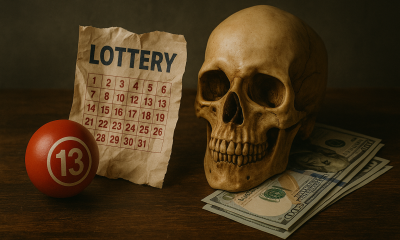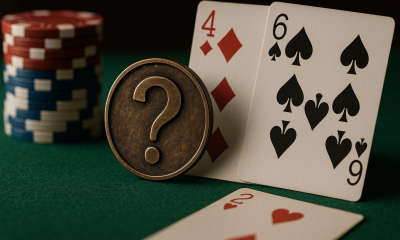Psychology
The Illusion of Control: Why We Believe We Can Beat the Odds

The illusion of control is one of the biggest gambler’s fallacies. Sure, we can directly impact the outcome in a game of blackjack or optimise the winning potential in video poker, but this does not guarantee we will always win. Control in casino games can have a deep impact on our psyche, and how we measure the risks and probabilities.
Where there is a level of control in casino games, there is also room for players to enhance their skills and talents. You can definitely reduce the house edge with the proper strategy and decision making. Players love games that they can get better at, especially if that translates to better winning opportunities. But with all these positives, there are great pitfalls and dangers that can harm even the most talented players.
Psychology of Control in Casino Games
Part of the reason why we gamble is that we love the thrill of predicting the unpredictable. Uncertainty is something that all of us process differently. While there are mathematical formulas through which we can count the chances of winning, we cannot predict with certainty what will happen. We need luck on our side to draw the right cards and make the decisions that will lead to victory. And these wins can produce great surges of joy and motivation.
When we take a risk and win, we are rewarded with a hit of dopamine. This is the winner’s high, and a feeling all casino gamers are familiar with. We feel this reward even more in skill-based games. This is because you are not simply relying on luck, but your actions can directly lead to a win or a loss. However, you will also feel an amplified emotional response after a loss. Losing can invoke a sense of gambler’s remorse, to varying extents.
In games that you can control, if you make a move that directly leads to a loss, it will hit harder than losing at a game of slots. For example, if you hit on 15 in blackjack, drawing 10 and going bust. It feels worse if the dealer had 13, and had you stood, they would have drawn the 10.
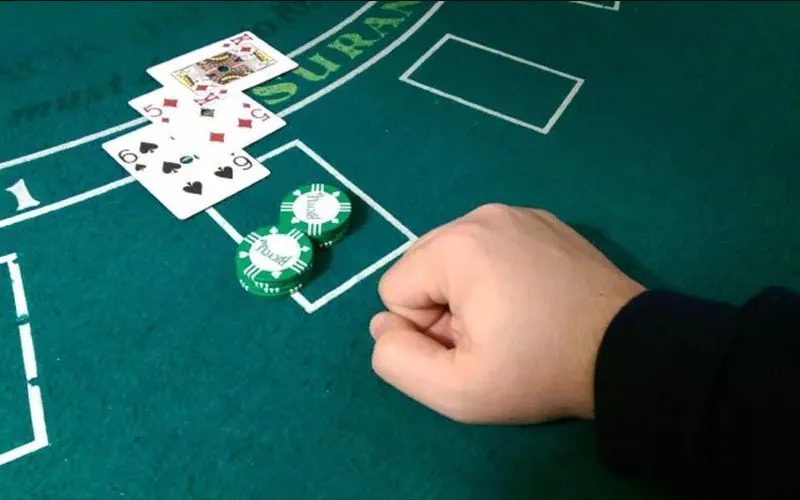
Illusion of Control – the Dangers
Control ultimately does not change the fact that luck governs the outcome, and even an optimised strategy cannot save you from losing. In some cases, if you use one of these strategies, you may even lose. For example, in basic blackjack strategy, players are generally encouraged to double down if they have a value of 10. The chances of drawing a 10 are around 30%, and you can make double money if you win. However, you are also accepting the risk that you will draw a lower amount, which could ultimately lead to a loss.
In video poker strategies, players must pursue bigger payouts, even if they already have a winning hand. Let’s say you have an open ended straight flush, with one pair in your initial draw. Instead of holding onto the pair, which would guarantee a payout, the optimal strategy is to hold onto the open ended straight flush. Discard the paired card, and keep the 4 that can make the straight flush. There is still a risk you will draw nothing, and end up throwing away a smaller payout in exchange for trying to hit a higher one.
Other, more critical dangers, are the cognitive biases that can warp the way we understand the odds.
Typical Control-Based Biases
We love to read patterns and try to predict things that are random. It is a common fallacy that can make players think they are close to a big win, or anticipate certainties where there are none.
Sure, the gaming odds state that you draw Jacks or Better just over 20% of the time. But that is in an ideal world, where the real draws perfectly align the mathematical odds. In that world, your chances of drawing a Royal Flush are 1 in 650,000 hands.
Buying into Winning or Losing Streaks
Winning or losing streaks are just a statistical anomaly or coincidence. The mathematics imply that they are not likely to happen, but that is no guarantee. The bias kicks in when you read too much out of such an anomaly.
When losing consecutive hands, you may think, yes – but the win should come soon. It must, to keep the game balanced and not rigged against you. Sadly, that is not the case. The previous outcomes have no effect whatsoever on what happens in the next draw. As for winning streaks, you should be cautious in not underestimating how lucky you got. Instead of trying to “max out” the streak, you should instead think about cashing out and leaving on a high.
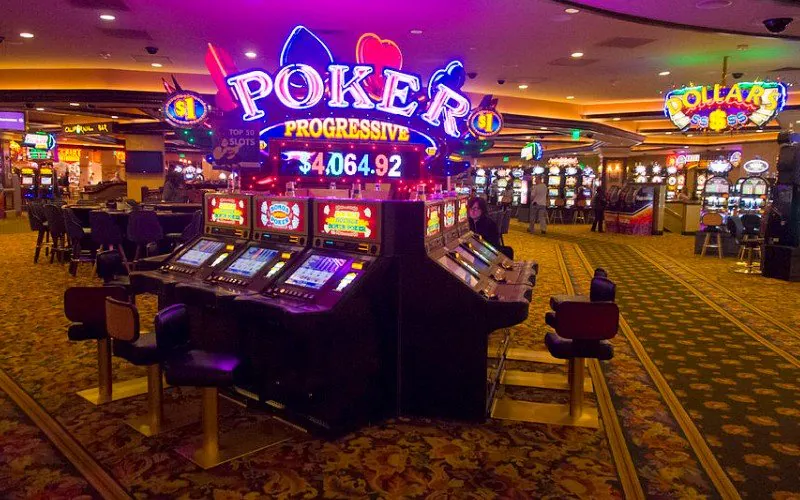
Strategy Enforcing Confirmation Bias
We mentioned this bias before, and now we can mention its name. Confirmation bias is the fallacy of believing you will win because of a strategy or a tip. Playing with a strategy enhances your chance of making a profit. It doesn’t mean you will win all the time. There are cases in which the strategies will point to making a riskier decision. This is to make bigger returns should you hit a rarer win. You can ignore the strategy in scenarios where you already have a smaller win. But this raises the house’s edge.
False Understanding of Optimism-Based Bias
At the beginning of our gaming sessions, we generally start with a positive outlook. That may not necessarily mean we expect to win, but we are optimistic about our chances. It is the anticipation and hope that perhaps after a few rounds, we will come into some big wins.
Players tend to feel more optimistic with games that have an element of control or skill. I’m feeling optimistic and ready to take the risks needed to try to win. Optimism biases can also lead to players building superstitions or gaming rituals. For the most part, they are harmless.
Until it starts affecting your gaming. Always remember that the games are designed to profit the house, and that the odds are not in your favor. Play cautiously, and don’t rule out the chance that you may end your gaming session on a loss, not a profit.
How to Avoid Psychological Traps
The uncertainty and potential rewards are what make gambling so fun, but they can also trick us. You have to understand these dangers before playing and come up with a good plan to avoid falling down any of these loopholes. It is easier said than done, as who wouldn’t get hyped after winning 10 blackjack hands in a row. Or cashing out 50x on a straight flush in Bonus Poker. But you have to keep a level head.
We would recommend you to tick the following boxes before even opening a real money casino game.
- Set up deposit limits
- Create a bankroll for your gaming
- Set reality checks to keep track of time
- Incentivise your gaming sessions
Bankrolls are necessary to ensure that you can play for longer periods without going bust. You don’t necessarily need to use your allocated budget for a single gaming session. But having the funds to sustain your session is a must.
Setting deposit limits gives you a solid foundation for creating your bankroll. It rules out the possibility of overspending. Reality checks are tools that you can use to measure how much time you spend gaming. Fatigue can help build cognitive biases, or give you unrealistic expectations.
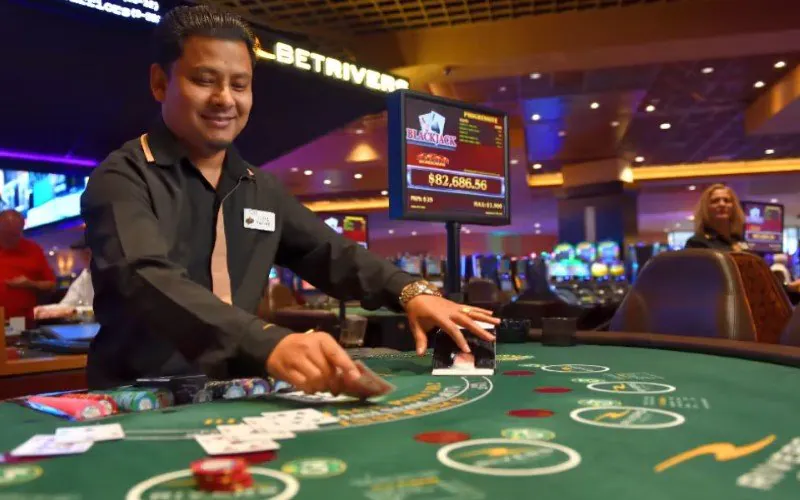
Incentivise and Use Rationale, Not Emotion
The illusion of control has its own dangers, but ultimately it enhances the excitement value of specific casino games. You are not guaranteed to make money, even with the control, but you can always increase your chances of winning. A good practice with these games is to give yourself a goal for each session. Stick to the plan, and don’t alter your bankroll during your session. Avoid trying to read patterns or build biases that distort the real odds. Play using rationale, and if you begin to feel tired, it is best to take a break until you are ready to have another go.


